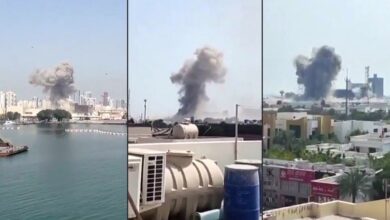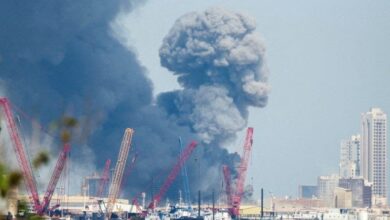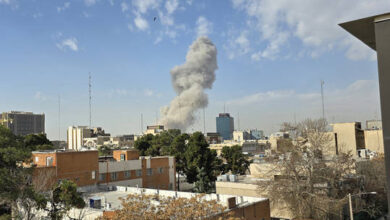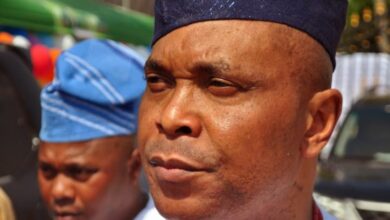Uncertainty over coup rumours in Ivory Coast
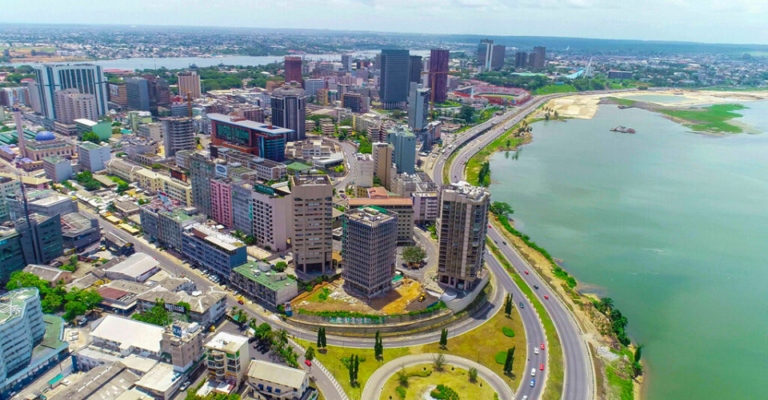
By KEMI KASUMU and Agencies
There have been complaints from the neighbouring Burkina Faso against President Alassane Ouattara of Ivory Coast allowing enemy West to use his country as base to plot attacks on its territory but warned he should stop it as the consequences for doing so will be severe.
Twenty four hours after the news broke out of a possible coup or large-scale uprising in Ivory Coast, particularly in Abidjan, where gunfire has been heard, it has remained unclear whether the coup was real or successful as conflicting information keep trickling in from the Sahel region country.
Among the information gathered was that the uprising occurred as the people trooped to the streets demanding the ouster of the President, Alassane Ouattara. While some claimed it was a successful coup, others said it was not.
According to reports, at least 33 people have been killed over the past 48 hours as clashes intensified in key areas of the capital, Abidjan.
The unrest followed widespread dissatisfaction with President Ouattara’s administration, accused of severe human rights abuses, increasing poverty and maintaining deep ties with France.
Protesters accused the Ouattara-led government of being a puppet of foreign powers, particularly France and the United States of America with growing criticisms aimed at the recent expansion of AFRICOM presence in the region.
However, official confirmation remains unclear, as internet access has reportedly been cut off, and government visibility is fading.
Some sources claim that President Ouattara may be missing, arrested, or possibly deceased, but there has been no official statement from the government.
Meanwhile, fact-checkers have flagged some viral videos as misleading, stating that there is no verified evidence of a military takeover in the country.
Given the uncertainty, international organisations and embassies are on high alert, urging citizens to shelter in place.
This is not the Ivory Coast’s first encounter with instability. The nation has previously endured a 1999 coup, civil wars from 2002-2007 and 2010-2011, and a military mutiny in 2017.
A source of The DEFENDER on the ground in Abidjan, who has been asked repeatedly for clarity purposes, said there was nothing like unrest where he was.
He substantiated his information with attempt to do a video of where he was, adding, “My office is not more than 100 meters from the presidential palace here and so if there is anything, trust me, I will tell you. Two people have also called me from Nigeria on this same issue,” he said.
There have been complaints from the neighbouring Burkina Faso against President Alassane Ouattara of Ivory Coast allowing enemy West to use his country as base to plot attacks on its territory but warned he should stop it as the consequences for doing so will be severe.
Burkina Faso’s revolutionary President, Army Captain Ibrahim Traore, came to power at 34 in 2022 now 36. He is not only well determined to free his country and Africa from the continued grip of western neo-colonialism but also has promised that he will not give the chance to any western power to set his people against their own government in order to return them to their former slavery.
Traore, who has survived more than 18 assassination attempts and coups, has been presented to the world power by Russian President Vladimir Putin as not only a dependable ally bit also a top priority.
He then promised to support President Ibrahim Traore and his country with all powers and intelligence necessary to overcome their challenges posed by the West in collaboration with some bad eggs among the locals.
Traore, as it seems, is not about the most heavily guarded world leader with highly screened, sophisticatedly equipped, kitted Burkinabe soldiers and members of the Wagner Group from the Russia.
The Wagner Group, officially known as PMC Wagner, is a Russian state-funded private military company (PMC) controlled until 2023 by Yevgeny Prigozhin, a former close ally of Russia’s president Vladimir Putin, and since then by Pavel Prigozhin.
The Wagner Group has used infrastructure of the Russian Armed Forces. Evidence suggests that Wagner has been used as a proxy by the Russian government, allowing it to have plausible deniability for military operations abroad, and hiding the true casualties of Russia’s foreign interventions, according to Wikipedia description.


